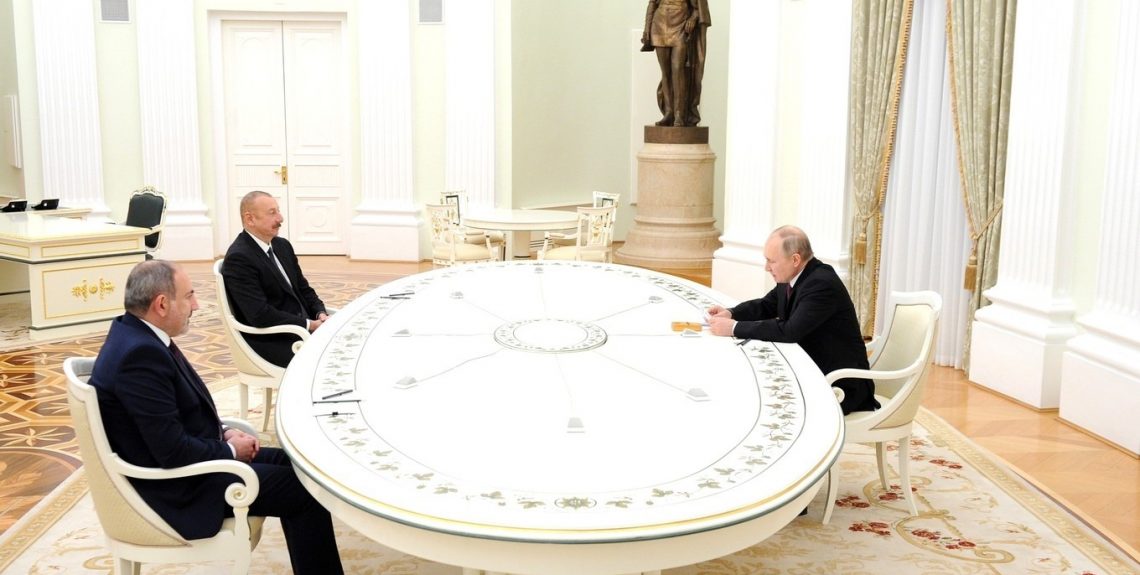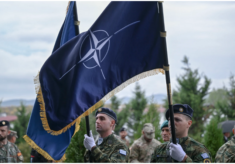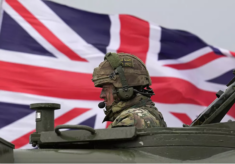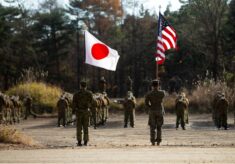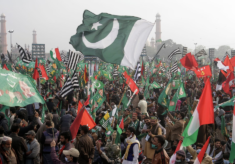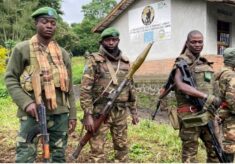While a new post-war reality is emerging in and around Nagorno Karabakh, the most relevant geopolitical take-aways of the conflict concerning the future of the region should now be considered. As shown by the first post-war meeting held by Putin on January 11 in Moscow, with Armenian and Azerbaijani leaders, there is little doubt that, on the one hand, Putin’s Russia confirmed its role of main powerbroker in the post-Soviet area. The diplomatic arrangement that halted the conflict has in fact allowed Moscow to further extend its military footprint in the South Caucasus. On the other hand, though, the conflict signalled elements of a growing power competition and the rise of Turkey’s geopolitical presence in this former Russian sphere of influence. Additionally, the conflict between Armenia and Azerbaijan has confirmed two relevant and intertwined geopolitical trends of 2020.
Firstly, the competitive yet continuous Russo-Turkish geopolitical cooperation; secondly, the main implications of the latter on NATO and on the broader European security landscape.
From the Syrian conflict onwards, we have witnessed the emergence of a new Machtpolitik led by Russia and Turkey in the wider Mediterranean region and beyond. They have imposed themselves as major forces in several crucially strategic areas, from Syria to Libya and from the Caucasus to the Horn of Africa. Moscow and Ankara have historically been on a path of geopolitical collision with respective opposed strategic interests in several geopolitical areas.
Currently, at the dawn of this turbulent 21st century, they are managing a delicate relationship that needs to rearrange and balance itself continuously with regards to the respective aims and political interests of the two nations. The last episode of this Russo-Turkish cooperative rivalry has involved the Caucasus region in a conflict that has long been boiling over, but that only now has seen an assertive Turkish presence and military activity.
The Transcaucasian region is seen by Russia as one of its most significant spheres of influence. The mere fact that Turkey was involved in the Armenian-Azerbaijan conflict is a breakthrough. Backing Azerbaijan’s military operations in the Karabakh disputed area is itself a significant game changer for the Caucasus’ region balance of power. Azerbaijani troops have indeed benefitted greatly from Turkey’s military assistance — mainly delivered through advanced military drones and military advisors — that was crucial in defeating Armenian forces.
Despite Armenia being a traditional Russian ally, Putin started the negotiations that led to the ceasefire and the subsequent peacekeeping mission only once Azerbaijan’s President Aliyev’s troops had already achieved significant military gains and after a Russian military helicopter was accidentally shot down by Azerbaijani soldiers.
As mentioned above, Moscow came out of the conflict successfully, reaffirming its status as a prominent regional powerbroker. Similarly, Ankara — as well as Baku, which now directly controls approximately one third of the contested region including the strategic town of Shusha — has reason to celebrate too. As evidence of this, on 10 December, Turkish President Erdogan and Azerbaijan’s President Aliyev attended a grandiose military parade in Baku, with the motto of the celebrations as being “two states, one nation.” Erdogan indeed managed to consolidate Turkey’s renewed geopolitical presence in a very sensitive region of Russia’s interests.
Strategic post-conflict infrastructure reconstruction is already underway in the war-torn territories, as Russia has set up a Humanitarian Response Centre in Stepanakert while also upgrading and restoring the abandoned airport therein. Meanwhile, Ankara is reconstructing damaged infrastructures in Ganja — the second largest city of Azerbaijan — and reportedly building a new military base there. Moreover, as Moscow has deployed peacekeeping units across multiple Karabakh areas, Ankara has established a post-conflict monitoring centre in the Azerbaijan Aghdam district. These dynamics could constitute only a taste of what is to come in terms of military build-up in the region in the upcoming years.
In conclusion, despite Moscow’s geopolitical success crowned with the strategic deployment of its troops in Stepanakert, five ultimate long-term consequences of the crisis have to be considered:
The conflict showed a new diversity of actors in a region in which Moscow used to be the only dominant force;
the increasingly Turkish assertiveness to return as a major geopolitical player in the region;
Erdogan’s will to push, increasingly its pan-Turkish and Islamic geocultural agenda in order to expand its influence in a largely Muslim dominated area
Rebus sic stantibus, with exclusively Russian peacekeepers on the ground, a usual OSCE contribution with its civil missions and peacekeepers seems so far unlikely
as a consequence of such military and diplomatic activism by Ankara and Moscow in this in fieri world order, the West’s geopolitical clout in Central and Eastern Europe, in Central Asia and in the Caucasus region risks being further undermined.
Giorgio Cella
PhD in Politics and Institutions at the Catholic University of Milan, where he holds a seminar in Post-Soviet Geopolitics and the Ukrainian crisis. His main areas of expertise are Eastern European and Russian Geopolitics and History of International Relations.

